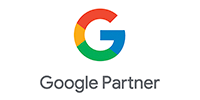For most people, one of the most confusing aspects of Facebook Ads is attribution.
The good news is that in this article we will cover exactly what attribution is, the changes in attribution that have been introduced since iOS 14.5 and how best to manage them.
What is attribution?
The Facebook attribution window is simply the period of time between a customer clicking on or viewing an ad and taking a conversion action on the website. It’s used to track which ads lead to conversion events and helps advertisers optimise their campaigns.
Let’s look at an example to help explain…
You see a Facebook ad that gets your attention, and you click on it. You land on the website and buy the product then and there. In this scenario, Facebook will immediately credit the ad for the purchase and the results will show in reporting and Ads Manager.
But what happens when you land on a website after clicking on an ad and don’t purchase immediately, however, you come back a few days later to buy the item? Will the Facebook Ads still claim credit for this sale?
The answer is yes, as long as the purchase happens within a pre-defined attribution window – i.e. the finite period of time between your click (or view) and your purchase.
How the Facebook attribution window has changed since IOS 14.5
For a very long time, Facebook had a ‘28-day click and 1-day view’ attribution window as the default setting. This meant that if a consumer clicked your ad and converted within 28 days or viewed your ad and converted within one day – this conversion would be attributed to Facebook, even if they converted on their second visit straight after clicking on a Google ad.
Due to increased tracking restrictions and the iOS 14.5 update, Facebook scrapped 28-day click, 1-day view earlier this year and left the following options:
- 1-day click
- 1-day click or view
- 7-day click (default)
- 7-day click or 1-day view
As you’ll see, the attribution windows have become much narrower, making it much more difficult to track purchases that happen outside of the 7-day period. This has been a challenge for marketers as it will appear that some of your ads are underperforming whereas, in reality, they are still playing a part in the purchase decision, but this can no longer be proven.
Owing to this change, we are losing conversion data that we would have had if the previous 28-day attribution window was still available. While this change isn’t within our control, we can do a couple of things to make sure we are capturing as much conversion data as possible.
How to improve Facebook conversion tracking
Enable all advanced matching features
1. Go to ‘Events Manager’ in Facebook Business Manager

2. Select your Pixel
3. Click the ‘Settings’ tab
4. Scroll down to the “Advanced Matching” section.
5. Click on ‘Show Options’ underneath this section.

6. Click all the toggles to ‘On’

Enable Server Tracking (Conversions API)
In response to the recent iOS 14.5 update, Facebook has suggested implementing server-side conversion tracking.
Also known as the Conversions API, this allows advertisers to send web events directly from website to Facebook without relying on the pixel, which has traditionally been used to send these events. This allows Facebook to track these web events more accurately.
Here is more information on how to set up server tracking.
A Note About Conversion Events
It’s important to note that iOS 14.5 users may have more limited attribution of the conversion events they complete, this is due to Aggregated Event Measurement. With Aggregated Event measurement, domains are limited to eight conversion events which can be organised based on how important that conversion event is to your business. For example, in the screenshot below you can see that the 4 ‘Purchase’ events and ‘add to cart’ are at the highest priority as this is what is most important to this specific client.

This is important to bear in mind when setting up your campaigns because if you optimise your ads for unprioritised events, your (retargeting) ads won’t serve to and you won’t get reports on web events triggered by people who opted out of Facebook tracking on devices with iOS 14.5 or later.
Learn more about conversion events here
Conclusion
While tracking conversions has become more difficult on Facebook recently, it’s important to adapt to the changes and do everything we can as marketers to make the best of the options we have available to us.
Following the information laid out in this article will help you to navigate this period of increased volatility that we are seeing with Facebook Ads at present.








